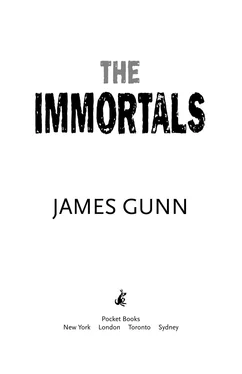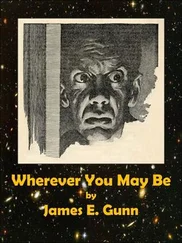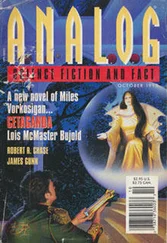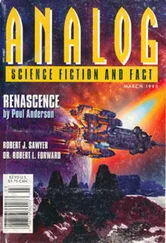“Except for the Cartwrights.”
“And cancer cells. You want to be young again, like Leroy Weaver,” Pearce said. “But that happened only once. You are old. I’m old. It’s not a bad thing to be.”
Locke’s expression wore a steely rejection. “That was all right when there was no alternative. But now there’s a chance for immortality, and only a helpless fool would settle for anything less.”
“I guess that’s what I am, then,” Pearce said.
“No, you’re the most powerful man around,” Locke said, “and that’s why we decided to renew your grant.”
“We?”
Locke smiled. “Me, then. I decided to renew your grant.”
“And why did you turn down the renewal in the first place?”
Locke studied Pearce as if gauging how open to be. “I wanted to see how you’d react.”
“You wanted me to make a personal appeal?”
“Maybe.”
“Be spurred to greater effort?”
“If that were possible. Time passes swiftly. Some of us are getting nervous.”
“And why did you set the fires this morning?”
Silence grew deep in the room before Locke said, “You know about that?”
“I don’t believe in coincidences. It was a mistake to set two.”
Locke spread his hands helplessly. “Subordinates make mistakes. They don’t make them twice.”
“But what were you after?”
“Proof. Evidence. Anything.” Locke bent his head forward to prop his chin on his fingers.
“Proof of what?”
“Of your Cartwright connections. Of your success with the elixir vitae.”
“What makes you think that I could make connections where you could not?”
“They might contact you; they wouldn’t trust me.”
“There’s no reason for them to contact me. In fact, there is every reason they shouldn’t, just as they shouldn’t contact each other. All they need is freedom and the opportunity to be fruitful and multiply and make the species immortal; sentimentality is their enemy.”
“I’m not interested in the immortality of the species, nor is any of my board of directors. The world ends when we do.”
Pearce went on as if he could eliminate Locke and his board of directors by ignoring them. “And they don’t know anything about you. I didn’t.”
“There’s a mythology that encompasses us both.”
“As for the elixir vitae,” Pearce said, “it is more complicated than I thought, not only the gamma globulins but the stem cells and maybe primordial chordamesoderm. But why would you think I had been successful?”
“There’s your appearance, for one thing,” Locke said. “You’re not much younger than I am, but you could pass for fifty, say—no more than sixty anyway.”
Pearce looked at Locke. “You’re the second person who has told me that. I’m beginning to believe it myself. But it’s all due to choosing long-lived parents, clean living, and a positive attitude.”
Locke shrugged. “There’s intuition as well: When you’ve been in the ‘needle in a haystack’ business as long as I have, you get a sense for these things.”
“You also get paranoid,” Pearce said.
Now it was Locke’s turn to look at Pearce.
Pearce turned toward the door and saw the outline of the big male nurse against the corridor wall. In that moment it transformed itself into the image of a large shadowy figure looming over him out of the darkness, holding a club. He remembered a laser that lit up the night, and he understood. The nurse was not a nurse but a bodyguard, and he performed other services as well, perhaps even setting fires.
Pearce turned back to Locke. “No doubt you hoped I would hurry to my laboratory to rescue my samples,” he said, “but I’m afraid there’s nothing there to rescue. Or to search my apartment for notes. But I don’t keep them there, as Tom Barnett no doubt told you.”
“Who?” Locke asked.
“But I’ll accept you as a patient, if you’re still serious about that, because I’m a physician and that’s what I do. And I will accept your grant to perform my research, if you’re still serious about that, because I need it and the work is important.”
Locke stood up, revealing what had been malformed about his figure. Through the part in the gown Pearce could see a metal framework that supported Locke’s body from his shoulders to his ankles and no doubt turned Locke’s nerve impulses into movement. Locke moved toward Pearce. Pearce kept himself from recoiling as Locke grasped his wrist in fingers like steel. No nerve damage here, or perhaps the external skeleton dived into Locke’s hands to become bone and sinew. Herod had turned himself into Frankenstein’s monster.
“I will fund your research,” Locke said, “because I think you may be the only one who can do it. I believe you have Cartwright connections because that’s what I would do if I were in your place. And when you have the elixir, you will turn it over to me.”
“I will publish the results like any scientist.”
“You will submit them,” Locke said. “They will not be published.”
“You’re overconfident.”
“Just realistic. I know my powers. And I know what would happen to the world if the elixir became public knowledge. There would be murders, riots, wars—and later on there would be the insoluble problems of overpopulation or a dropping birthrate and stagnation. But you will do the research because you are the kind of person you are, and you will give it to me because I am the kind of person I am.”
Pearce pried Locke’s hand from his wrist, one finger at a time. “I’m not your creature,” he said. “But we understand each other. I will synthesize the elixir with the hope of getting it free from you somehow and getting it to the people who can use it more wisely than you or I. And if I fail at that and it becomes yours to do with as you wish, I won’t despair. It will take the pressure off the Cartwrights, and gradually, no matter what you do, the secret will leak out and it will become the property of all humanity.”
Pearce turned and walked through the door past the threatening bodyguard and through the familiar corridors and down the elevators until he found himself once more in the clean, cool purity of his laboratory, his refuge from the aggravations and petty concerns of the outside world. Now he knew that his apprehensions about someone’s presence while he was gone had been mere paranoia. If Locke had known he had samples of Cartwright blood, he would never have let him go without confiscating them.
Someone buzzed at the door for admission, and Pearce went to the intercom.
“It’s me, Julia,” a voice said. “Are you all right?”
Pearce went into the airlock to admit her, hoping she was alone but knowing that it didn’t matter: He could not exclude the world. She was alone, and she took hold of his arm in reassurance as she entered. “Sure,” he said.
“So much has happened.”
“My grant has been renewed,” Pearce said. “It seems the executive director of the National Research Institute has checked in as a patient.” Did he detect a flicker of awareness? “But I think it’s time Tom Barnett moved on. He’s capable enough to handle his own operation. Do you think you can find him another position?”
They had moved into the laboratory and stood in front of his experiment in apoptosis. “I’ll do better than that,” Hudson said. “I’ll recommend him to a friend in Chicago, who’s looking for a senior geriatrician.”
“I’ll need a new assistant,” Pearce said. “Would you like to apply?”
She looked at him as if he had made a declaration of love. “I’d have to give up what little free time I have, like reading and maybe some social obligations, but I can’t think of anything I’d rather do.”
Читать дальше












